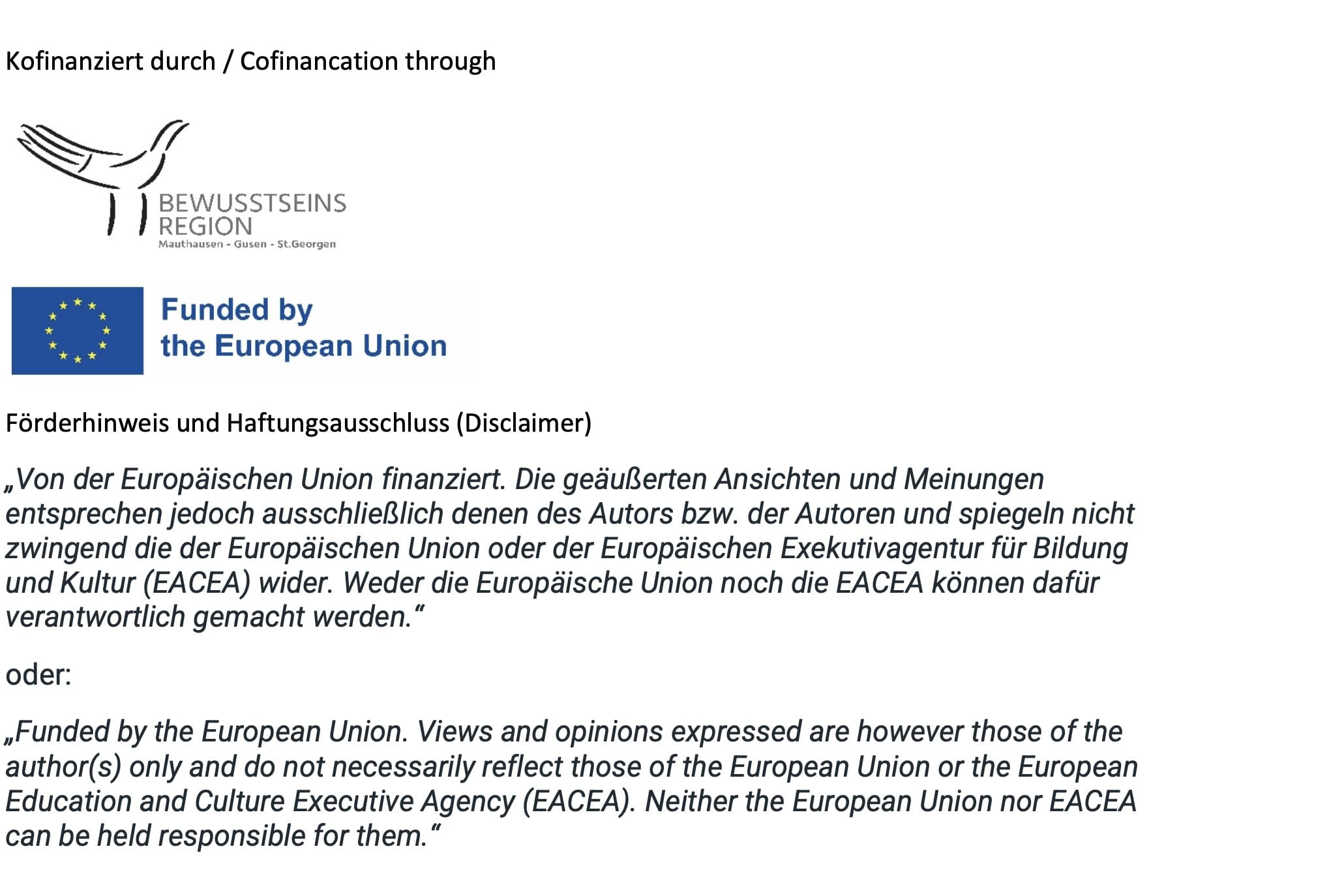Zwangsarbeit: Entwicklung Wanderausstellung und pädagogische Materialien für Schulen
Um dem zunehmenden Rechtspopulismus in den europäischen Ländern entgegen zu wirken, sollen mit Schülern Fakten und Daten der NS-Vergangenheit aufgearbeitet und in den Kontext zu aktuellen Tendenzen gestellt werden. Beim Projekt Zwangsarbeit: Entwicklung einer Wanderausstellung und pädagogische Materialien für Schulen arbeiten 8 Organisationen - Schulen, ein Museum und Gedenkinitiativen und kommunale Einrichtungen aus Österreich, Italien und Polen zusammen und entwickeln eine Wanderausstellung samt pädagogischer Materialien. Sie entsprechen damit dem europäischen Bedarf, dass sich mehr Schüler*innen mit dem Thema der ehem. Konzentrationslagersysteme, dem Holocaust und seinem Bezug zur Gegenwart beschäftigen möchten und bietet dazu weitere Möglichkeiten. Eine Wanderausstellung ist sehr leicht und mobil einsetzbar und kann in Folge viele Menschen erreichen. Das Herzstück des Projektes ist der intellectual output O1: Wanderausstellung zum Thema Zwangsarbeit, die sich dem Thema Zwangsarbeit im Stollensystem "Bergkristall" in Österreich, der Deportation aus Empoli in Italien und dem Vernichtungslager Sobibor in Polen und einem Beispiel von heute widmet und mit 21 Rollups in den Sprachen deutsch, englisch, italienisch und polnisch entwickelt wird. Begleitend dazu werden die intellectual outputs: O2: Pädagogischer Leitfaden, ein Konzept zur Vorbereitung der Lehrer und Lehrerinnen zur Verwendung der Ausstellung und O3: Broschüre zur Ausstellung / Arbeitsblätter Schüler*innen / Lernvideos entwickelt. Als Basis zur Entwicklung der intellectual outputs findet die Lernaktivität C3 Zwangsarbeit: historische Erkenntnisse und pädagogische Erfahrungen mit 16 Teilnehmer*innen statt, bei dem die Meilensteine festgelegt werden. Die 3 länderübergreifende Treffen koordinieren den Prozess, sie legen die Richtlinien fest und runden die entwickelten Aktivitäten ab.
Projekttitel in englischer Sprache Forced Labour: Development of an exhibition and pedagogical materials for schools
In order to counteract the growing right-wing populism in the European countries, the aim is to work with students to re-examine facts and data from the Nazi past and to place them in the context of current trends. The forced labor project: Development of a travelling exhibition and educational materials for schools are bringing together 8 organisations - schools, a museum and remembrance initiatives and municipal institutions from Austria, Italy and Poland and they are developing a travelling exhibition including educational materials. In doing this, they meet the European need for more students to want to deal with the topic of the former concentration camp systems, the Holocaust and its relation to the present, and offer further possibilities for this. A travelling exhibition is very easy and mobile and can reach many people as a result. The heart of the project is the intellectual output O1: travelling exhibition on forced labor, which is dedicated to the topic of forced labor in the tunnel System "Bergkristall" in Austria, the deportation from Empoli in Italy and the Nazi-Camps, Sobibor extermination camp in Poland and an example of today. There is developed an Exhibition with 21 rollups in the languages German, English, Italian and Polish. As accompanying intellectual outputs are developed and produced: O2 pedagogical guide a concept for preparing teachers for the use of the exhibition and O3: brochure on the exhibition / worksheets for students / Learning videos. As a basis for the development of intellectual outputs, the learning activity C3 Forced Labor: historical findings and pedagogical experiences with 16 participants takes place, in which the milestones are defined. The 3 transnational meetings coordinate the process, define the guidelines and round off the activities developed. In the learning activity C1: Training for the testing of the travelling exhibition and the pedagogical materials, 11 educators of the partner organizations are given the opportunity to test the materials, they give the appropriate feedback.



